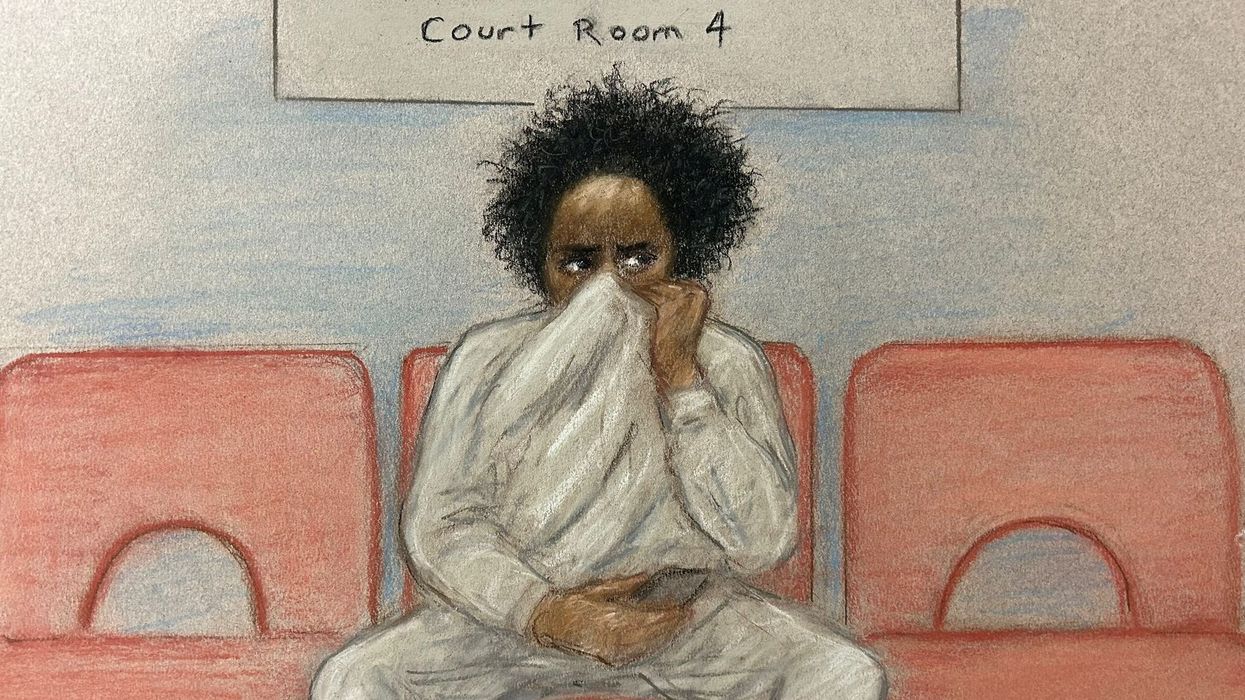MORE THAN 300,000 pro-Palestinian demonstrators marched through central London on Saturday (11), with police arresting over 120 people as they sought to stop far-right counter-protesters from ambushing the main rally.
Skirmishes broke out between police and the far-right groups gathered to protest against the demonstration taking place on Armistice Day, the anniversary of the end of World War One, when Britain commemorates its war dead.
Prime minister Rishi Sunak condemned the violence seen at the Cenotaph war memorial and also attacked "Hamas sympathisers" who joined the bigger rally, "singing antisemitic chants and brandishing pro-Hamas signs and clothing on today's protest".
Tensions had been running high before Saturday's march - the biggest in a series to show support for the Palestinians and call for a ceasefire in the Gaza Strip - after home secretary Suella Braverman called them "hate marches" led by "mobs".
London's Metropolitan Police had refused ministerial requests to block the event, saying they did not have indications that there would be serious violence, straining relations with the government.
Police said in a statement late on Saturday that they had arrested 126 people so far, the majority of whom were right wing protesters who formed part of a group several hundred strong which police said included football hooligans.
"The extreme violence from the right wing protesters towards the police today was extraordinary and deeply concerning," Assistant Commissioner Matt Twist said, adding that a knife and knuckleduster were found during searches.
The intense debate about protest and policing in the run-up to the march had raised community tensions, he said.
While the much larger pro-Palestinian rally did not see physical violence, the senior officer said small groups had broken away from the main march, and about 150 people wearing face coverings had fired fireworks which struck officers in their faces, leading to arrests.
Investigations into a small number of hate crime and support for proscribed organisation offences were also ongoing, he said.
Sunak called for the police to take a tough line.
"All criminality must be met with the full and swift force of the law," he said in a statement late on Saturday. "That is what I told the Met Police Commissioner on Wednesday, that is what they are accountable for and that is what I expect."
Skirmishes between police and right wing protesters continued throughout the day, with police in riot gear using batons to try to contain protesters who threw bottles.
London mayor Sadiq Khan and Scotland's first minister, Humza Yousaf, said Braverman had inflamed tensions and emboldened the far-right by accusing the police of favouring "pro-Palestinian mobs" before the event.
Police said more than 300,000 had joined the pro-Palestinian rally, while organisers put the figure at 800,000.
Police said they were prepared for small breakaway groups and expected pockets of violence, with concern about far-right groups, including football hooligans massing to protect landmark memorials.
The founder and former leader of the far-right EDL, Tommy Robinson, was seen among the crowds of counter-protesters.
The Metropolitan Police said it was "actively seeking" two masked men pictured on the march wearing Hamas headbands, promising "proactive action when they are identified".
Some marchers chanted "From the river to the sea, Palestine will be free", a rallying cry viewed by many Jews as antisemitic and a call for Israel's eradication.
Others carried banners reading "Free Palestine", "Stop the Massacre" and "Stop Bombing Gaza".
Since Hamas's assault in southern Israel on Oct. 7, there has been strong support and sympathy for Israel from Western governments, including Britain's, and many citizens. But the Israeli military response has also prompted anger, with weekly protests in London demanding a ceasefire.
'Hate marches'
About 1,850 police officers, including some from other forces across Britain, have been drafted in to keep the peace.
An exclusion zone was created around central London, including The Cenotaph, where crowds wearing poppies -- the symbol of remembrance -- gathered to pay their respects in silence, and by laying wreaths.
King Charles III leads a national remembrance event at the war memorial with senior royals, political leaders and veterans on Sunday.
Braverman, an increasingly outspoken right-winger, did little to quell tensions this week, by accusing police of being more sympathetic to so-called left-wing protests than others, and calling the pro-Palestinian demonstrations "hate marches".
Support for Palestinians is a long-standing policy of the British political left.
Her political opponents accused her of loose talk that emboldened far-right protesters to try to take on the police, and enraging pro-Palestinian supporters.
(Agencies)



















Clifford had previously denied killing Carol Hunt, 61, the wife of horseracing commentator John Hunt, and their daughters, Louise Hunt, 25, and Hannah Hunt, 28. (Photo: Hertfordshire Police /Handout via REUTERS)
Man pleads guilty to crossbow murders of BBC presenter’s family
A 26-YEAR-OLD man on Wednesday pleaded guilty to murdering two daughters of a BBC sports commentator and stabbing to death their mother in a crossbow attack.
Kyle Clifford had previously denied killing Carol Hunt, 61, the wife of horseracing commentator John Hunt, and their daughters, Louise Hunt, 25, and Hannah Hunt, 28.
However, appearing via video link at Cambridge Crown Court in eastern England, Clifford changed his pleas.
The court heard that Clifford tied up Louise Hunt, his former partner, binding her arms and ankles with duct tape before shooting her in the chest with a crossbow at the family home last July.
He pleaded guilty to three counts of murder, one count of false imprisonment, and two counts of possessing offensive weapons. However, Clifford denied raping Louise.
The murders took place at the family home in the commuter town of Bushey, near Watford, northwest of London.
Clifford was arrested in July following a manhunt after the bodies of the three women were discovered.
(With inputs from AFP)